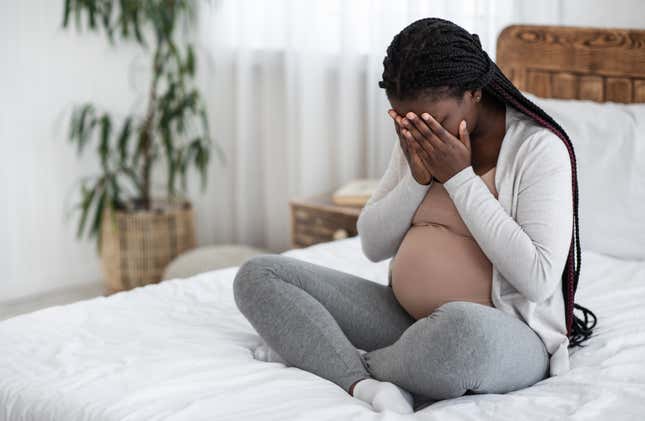
One of the Biden Administration’s top healthcare officials is sounding the alarm about persistent maternal health disparities for Black women, which they say don’t wane even as income and education levels rise.
Black women have long experienced higher rates of complications from pregnancy and childbirth, including miscarriage and stillbirth, than the population at large. Those disparities are known to be heavily concentrated among mothers with lower incomes, who are likely to be uninsured or live in communities with low concentrations of medical facilities.
But many people assume that those challenges dissipate at least somewhat for Black women as they climb the income and education ladders and obtain college degrees and middle-to-upper income status. Unfortunately, those problems don’t decrease even as more money comes in, said Chiquita Brooks-LaSure, the Administrator for the Centers for Medicare and Medicaid Services under the Department of Health and Human Services.
“Income is not a protector for Black birthing people,” Brooks-LaSure said. “I, a middle class woman with education, am one of the few women in my circle who did not have a negative event in my pregnancy. I think a big part of that was that my provider was Black and I felt listened to. Many people don’t have that experience.”
In a report issued last June, the Biden White House laid out what it deemed a “maternal health crisis facing the United States,” in which overall maternal death rates are double in the United States than they are among other Western nations. As bad as that sounds, the numbers are startlingly worse for Black women, who suffer pregnancy-related deaths at a rate more than triple that of white women per 100,000 live births, according to the report, which also echoed Brooks-LaSure’s comments.
“These disparities persist regardless of income, education, geography and other socioeconomic factors,” it reads. “Systemic barriers and the failure to recognize, respect and listen to patients of color when they express concerns continues to contribute to unequal outcomes for Black and [American Indian/Alaska Native] people in our health system.”
Translation: Black women are dying at a high and unnecessary rate largely because doctors aren’t listening to them. To begin to address the disparities, the federal government has rolled out or expanded several new policies. Under Medicaid expansion, 28 states and Washington, D.C. are providing as much as 12 months postpartum care for mothers. Brooks-LaSure’s Centers for Medicare and Medicaid Services introduced a “birthing-friendly designation” for hospitals that meet specific benchmarks for maternal care.
Brooks-LaSure’s remarks came during a panel discussion that occurred at a daylong summit on Black held by the Department of Health and Human Services. In addition to the panel on Black maternal health, there were sessions on mental health, systemic barriers to health equity and a workshop on various healthcare-related federal grants.
In an interview following the summit, Brooks-LaSure elaborated on her personal experience and that of other Black women who have seen first hand how what should be routine prenatal and maternal care can lead to complications.
As many as two-thirds of maternal deaths are preventable, she said, and often result from complications whose signs may have been missed by healthcare providers. She pointed to the example of Serena Williams, the tennis great who wrote a 2018 essay about her near-death experience after giving birth to daughter Olympia.
“You could be a very healthy person who doesn’t interact with the healthcare system very much, but when you give birth, you’re in crisis, in panic mode. It’s critical that your provider is seeing all the signs.”